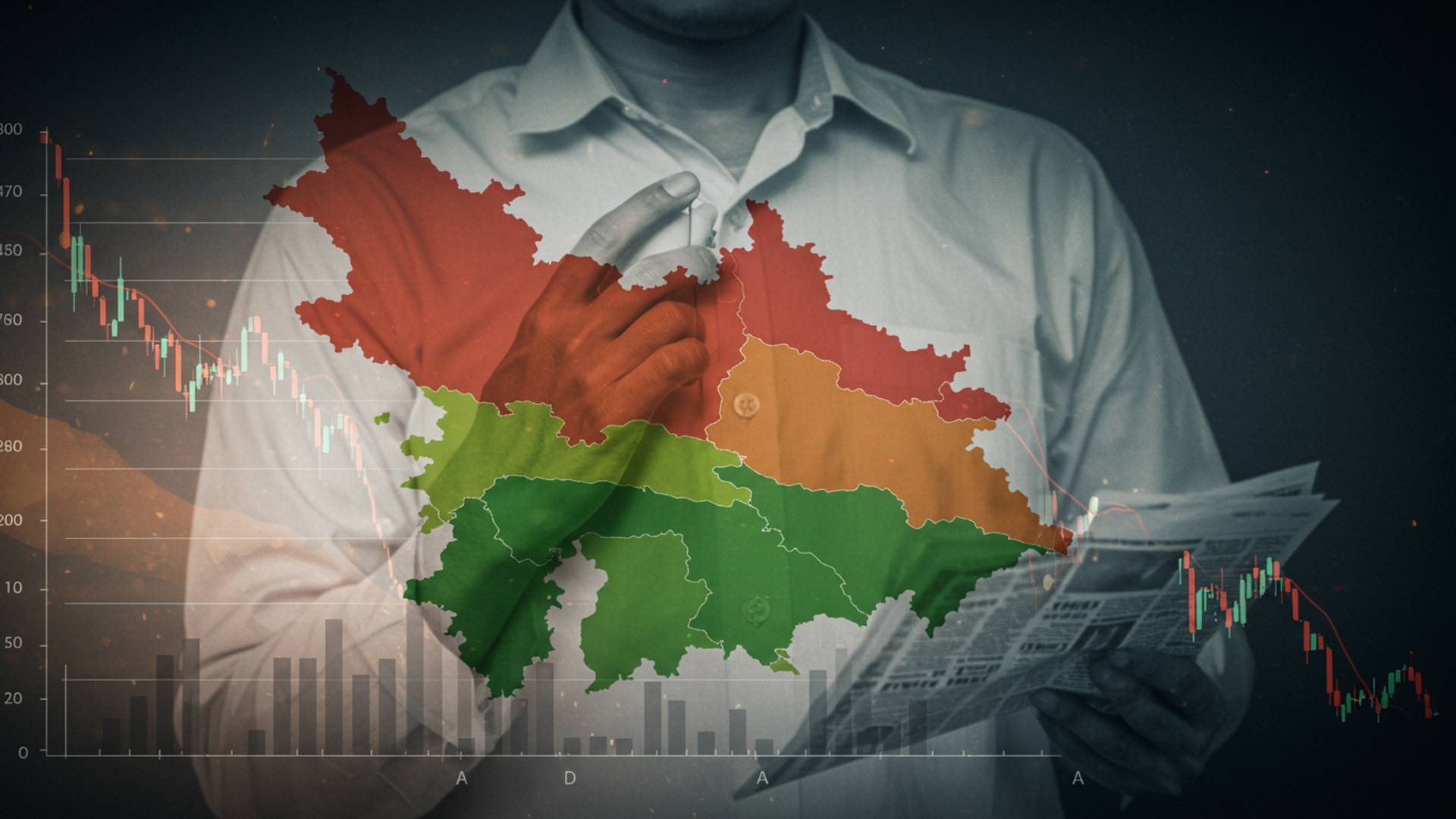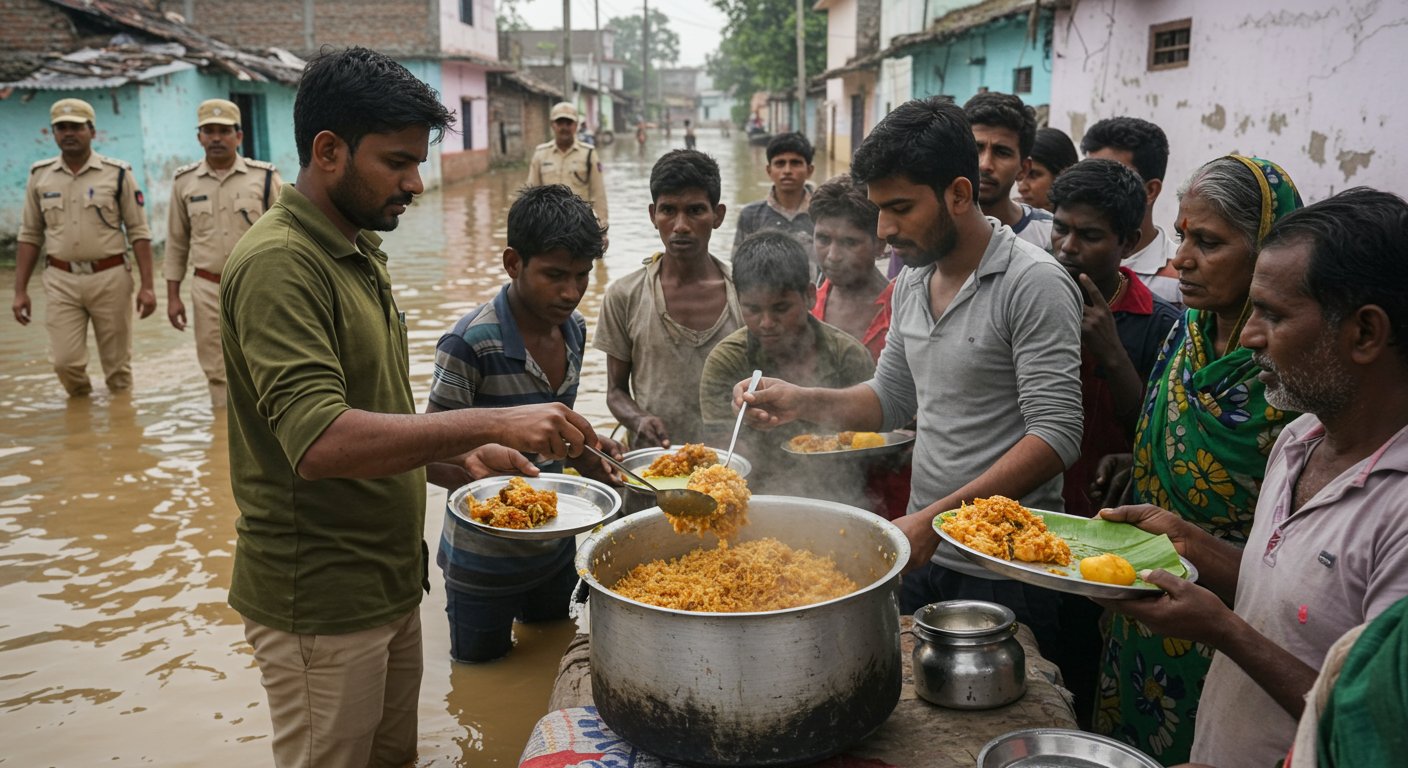Telangana’s economy faces a new and urgent threat as signs of deflation are now appearing, raising serious alarms for businesses and ordinary people across the state. This worrying trend means prices for goods and services could soon fall, directly impacting company profits and making it harder for people to find work or even keep their current jobs. Experts are closely watching the latest economic numbers, which suggest a significant shift in the market, pointing towards a brewing storm that could affect everything from farm income to daily household spending. The state government is now working to comprehend and respond to this growing crisis, as the possibility of a widespread economic slowdown becomes a real and pressing concern for everyone living in Telangana.
Falling Prices Raise Concerns Across Telangana
Telangana, a key state in India, has recently entered a period where general prices for goods and services are falling. This economic situation, known as deflation, is being observed for the first time since the state was formed in 2014. Official reports from the Union Ministry of Statistics and Programme Implementation (MoSPI) show that Telangana is currently the only major state in India to record negative inflation rates.
In June 2025, the overall inflation rate in Telangana was recorded at -0. 93% when compared to June 2024. This drop was more significant in rural areas, which saw a negative inflation of -1. 54%, while urban areas experienced a decrease of -0. 45%. The trend continued into July 2025, with the state’s inflation standing at -0. 44%. In contrast, the national average inflation rate for India was positive, at 2. 1% in June and 1. 55% in July, highlighting the unique economic path Telangana is on.
This period of falling prices marks a big change for Telangana. Between 2020 and 2023, the state had faced high inflation, with prices often rising by more than 10%. This earlier period caused worries about the increasing cost of living and how affordable things were for people.
Understanding Deflation and Its Effects
Deflation is generally seen as a sign of economic slowdown. When prices fall, it can mean that people are buying less, businesses are not investing as much. overall economic activity is slowing down. While lower prices might seem good for consumers at first glance, long-term deflation can hurt the economy by reducing company profits, leading to job losses. slowing down new investments.
Economic experts and political leaders have expressed concerns about the current situation in Telangana. They warn that continued deflation could lead to long-term economic problems and difficulties in the state’s finances.
“What Telangana needs is moderate, healthy inflation. not a freefall in prices,” economic experts have stated. They added that if the trend of falling prices continues, it could harm the state’s total economic output and the income of its people.
Impact on Different Parts of the Economy
The falling prices are affecting various sectors in Telangana, causing distress for many.
- Farmers: Many farmers are being forced to sell their produce at prices lower than what it cost them to grow it. This situation is made worse by poor buying practices by the government and delays in payments for Minimum Support Prices (MSP). This is causing severe stress in the rural economy and leading to more people moving out of villages in search of work.
- Businesses and Industry: The slowdown in demand is causing businesses to put their plans for expansion on hold. New investments are not happening, as falling prices and weak demand suggest that businesses will not earn good returns on their money. The number of new industrial units starting in the state has also gone down. In the current financial year, only 724 units have received approval, which is much lower than the 2,680 units approved last financial year. This directly impacts job creation.
- Government Finances: Lower prices often mean lower collection of Goods and Services Tax (GST). This can reduce the state government’s ability to fund public services and welfare schemes for its citizens.
- Real Estate and Land Values: The value of agricultural land has fallen sharply over the last year. This has made it hard for farmers to get loans because their land, which they use as collateral, is worth less. The drop in land values has also affected the state’s income from property registrations and stamp duty.
For example, a table below shows how the national inflation compares to Telangana’s figures:
| Period | Telangana Overall Inflation (YoY) | India Overall Inflation (YoY) | Telangana Rural Inflation (YoY) | Telangana Urban Inflation (YoY) |
|---|---|---|---|---|
| June 2025 | -0. 93% | 2. 1% | -1. 54% | -0. 45% |
| July 2025 | -0. 44% | 1. 55% | -0. 91% | -0. 05% |
Government Response and Political Views
The current Congress government, which took power in December 2023, has stated that its welfare programs, such as free bus travel for women, cheaper LPG gas cylinders, free electricity, health insurance. free rice for ration card holders, have helped reduce the financial burden on people and brought down inflation. They see the low inflation figures as a positive outcome of their policies.
But, the opposition BRS party has strongly criticized the government, blaming its economic policies for the deflation. They argue that the fall in prices is not a sign of relief but a dangerous signal for the state’s economy. BRS leaders have pointed out that people are spending only on essential items. business and industrial activities have almost stopped.
BRS working president KT Rama Rao stated, “When people spend only on essentials, when business, trade and industry grind to a halt. It is not a healthy sign. a dangerous indicator.” He also mentioned that the lack of new jobs and a slowdown in economic activity are major reasons for this crisis.
The BRS party has urged the government to take immediate steps to boost the economy, including starting economic reforms and job creation programs. They claim that government spending on both welfare and major projects has gone down, leading to less money in people’s hands and a drop in demand. They also allege that policy mistakes have hurt agriculture, real estate. small businesses.
Steps Being Considered
In response to the economic situation, the Telangana government is looking at various measures. The state government has committed to clearing a significant amount of pending industrial subsidies, totaling around Rs 400-500 crore, that have been unpaid since 2014. This move aims to help businesses, especially small and medium-sized ones, which are crucial for the state’s economy.
Also, the state government is considering changes to stamp duty for property registrations and revising the market value of land. While the previous government had increased stamp duty in 2022, the current government is thinking about a small decrease to 7%. They are also looking at increasing the official market value of lands in prime areas, which could affect government revenue from registrations.
The state also faces a urea shortage, which is causing difficulties for farmers, threatening crop yields. leading to higher prices in the black market for this essential fertilizer.
The economic growth in Telangana has also been noted to be uneven, mainly concentrated around Hyderabad and its nearby areas, showing a need for balanced development across all districts.
![]()










